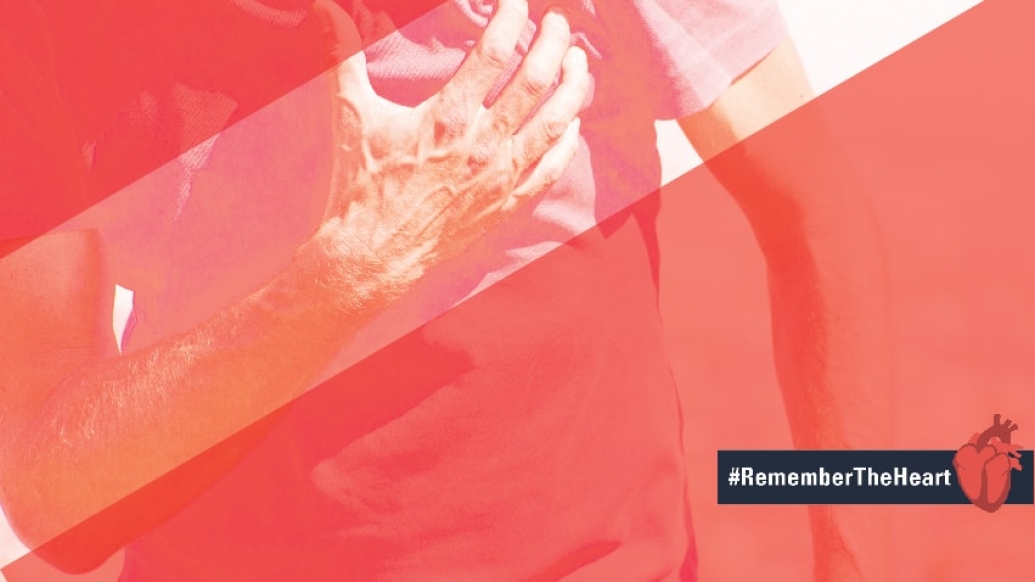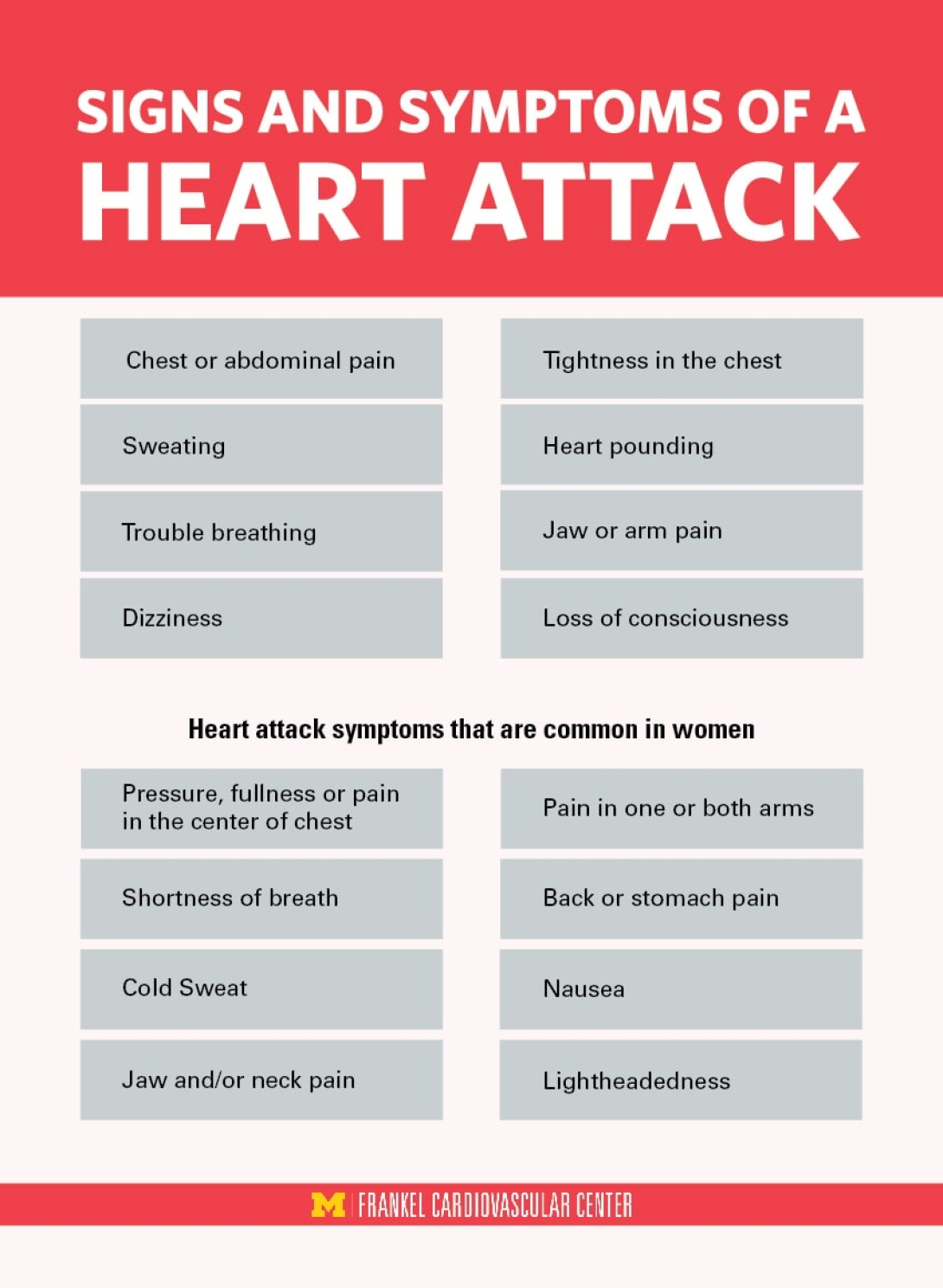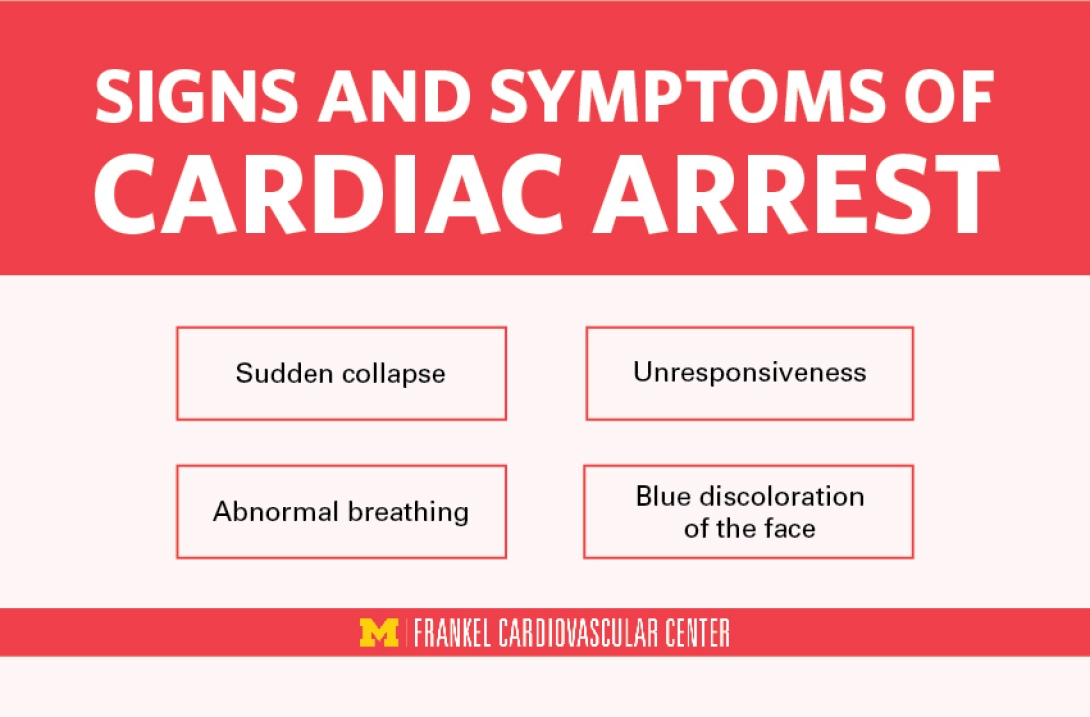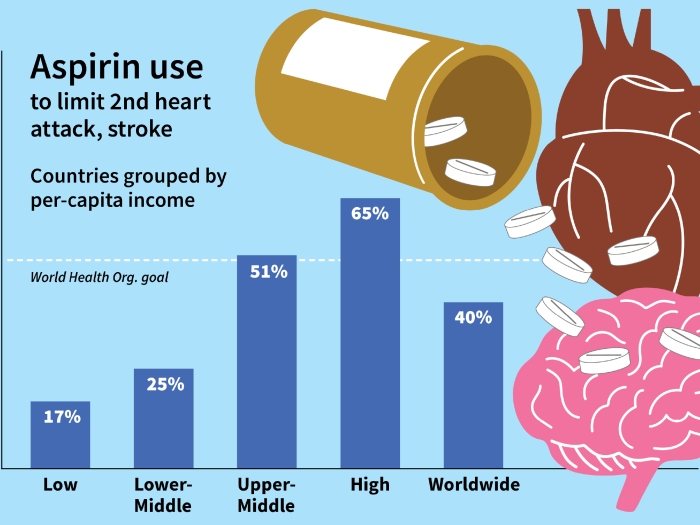Often connected to each other, these emergency cardiac scenarios can be deadly. Learn the signs and symptoms of both — and what to do next.
7:00 AM
Author |

The terms heart attack and cardiac arrest are often used interchangeably, but they are very different conditions.
MORE FROM MICHIGAN: Sign up for our weekly newsletter
Both can be deadly and require immediate medical attention, so it's important to know the differences and what to do in each situation.
What happens during a heart attack
The heart needs oxygen to function properly. A network of blood vessels surrounds the heart and supplies it with oxygen-rich blood. A heart attack occurs when one of the blood vessels feeding the heart is blocked.
After that, every minute counts: "The longer a person goes without blood flow to the part of the heart normally fed by the blocked blood vessel, the greater the damage," says Robert Neumar, M.D., chair of emergency medicine at Michigan Medicine.
Sometimes, the symptoms of a heart attack are mild, lasting for hours or days. At other times, symptoms are intense and felt immediately. When a heart attack is severe or causes an abnormal heart rhythm, it can lead to cardiac arrest.

How to treat a heart attack
If you or someone you are with has chest discomfort or other heart attack symptoms, call 911 immediately.
SEE ALSO: A Doctor Explains What Makes a Heart Attack a 'Widowmaker'
"Many people delay treatment because they doubt they are having a heart attack, but it's better to be safe than sorry," says Neumar. "Prompt medical attention can maximize the chances of survival and minimize damage to the heart."
While waiting for paramedics to arrive:
-
Try to keep the person calm and have him sit or lie down.
-
If the person is not allergic to aspirin, have him chew and swallow a baby aspirin.
-
If the person stops breathing, perform CPR immediately. The 911 operator can provide instructions until emergency responders arrive.
What happens during cardiac arrest
Cardiac arrest, the third-leading cause of death in the United States, happens quickly and often without warning.
"During cardiac arrest, the heart suddenly stops beating because of an electrical problem or lack of oxygen," says Neumar. "When this occurs, blood and oxygen are no longer being delivered to the brain and other vital organs. Death occurs within minutes if the person does not receive immediate treatment."

How to treat cardiac arrest
If you see someone suddenly collapse, first call 911, send someone for an AED (automated external defibrillator), if available, and immediately start hands-only CPR. These steps can double or triple a person's chance of survival.
If an AED is available, use it by following the simple instructions. An AED is a device that can automatically detect when a shock to the heart is needed — and safely deliver it.
Continue hands-only CPR until emergency responders arrive. If you don't know CPR, the 911 operator can tell you how fast to push on the chest.

Explore a variety of healthcare news & stories by visiting the Health Lab home page for more articles.

Department of Communication at Michigan Medicine
Want top health & research news weekly? Sign up for Health Lab’s newsletters today!





